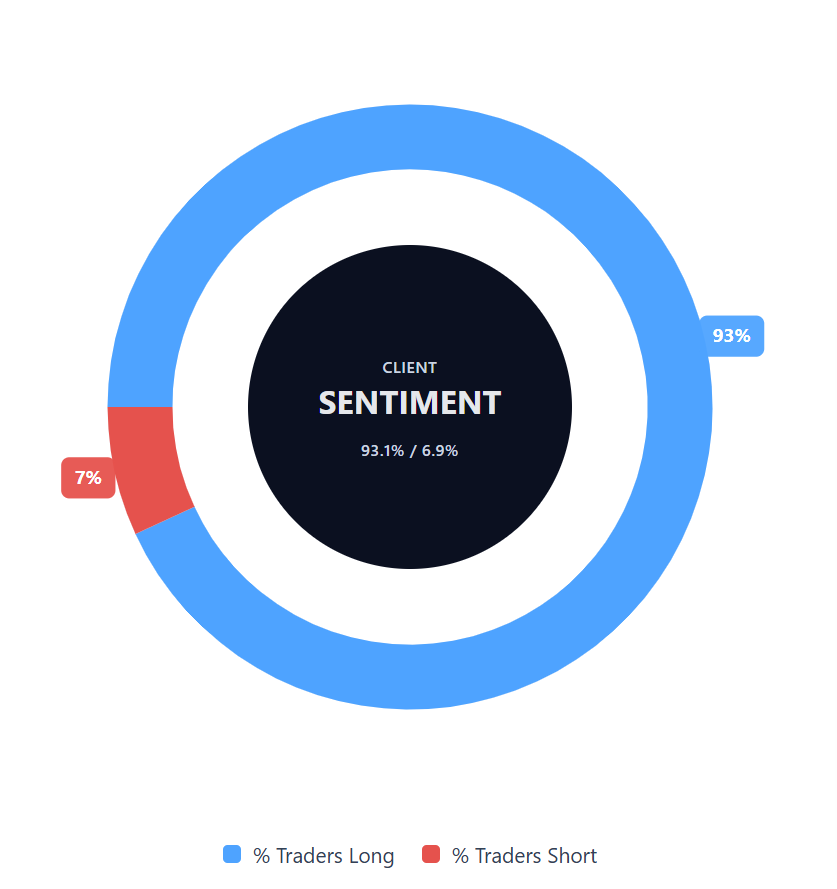TSMC stock forecast: Third-party targets
Taiwan Semiconductor Manufacturing Co (TSM) was trading at $276.65 at 4.55pm UTC on 25 September 2025, within an intraday range of $270.91–$282.95.
The stock closed below the daily high amid broad market weakness.
Support from AI chip demand has underpinned the stock’s position, with TSMC reporting 34% year-on-year revenue growth in August 2025. Analysts project third-quarter sales to rise by around 25%, reflecting continued artificial intelligence infrastructure spending. However, the semiconductor sector faces headwinds from a wider market reassessment of rate-cut expectations. US indexes fell to one-week lows as investors awaited new catalysts following this month’s record rally (Reuters, 25 September 2025).
TSMC stock forecast: Analyst price target view
Huatai Securities (equity research)
The firm raised TSMC's price target to $320 from $300, maintaining a Buy rating. Analyst Leping Huang noted the company’s significant rise in average selling prices and profitability over the past five years, with TSMC gaining a competitive edge since the launch of its N3 node (Futubull, 18 September 2025).
Barclays (investment banking research)
Simon Coles increased the price target to $325 from $275, reiterating an Overweight rating. The bank highlighted TSMC’s continued leadership during the artificial intelligence expansion, citing strong performance across business segments and identifying it as their top semiconductor pick (Futubull, 16 September 2025).
Bank of America Securities (global investment research)
Brad Lin of Bank of America Securities reiterated a Buy rating with a price target of $290 (Yahoo Finance, 29 August 2025).
Predictions and third-party forecasts are frequently inaccurate, as they cannot account for unforeseen market developments. Past performance is not a reliable indicator of future results.
Taiwan Semiconductor stock price: Technical overview
Taiwan Semiconductor Manufacturing Co (TSM) was trading at $276.65 at 4.55pm UTC on 25 September 2025, above its key moving-average cluster, with the 20/50/100/200-DMAs at approximately 256, 246, 227 and 207. The 20-over-50-day alignment remains in place, keeping the near-term trend constructive as price trades about 12% above longer-term averages.
Momentum remains firm, with the 14-day RSI at 68.57, indicating strength while staying below overbought territory. The Average Directional Index at 36.36 suggests an established trend, while the MACD level has generated a buy signal at 10.52.
The first upside level to monitor is the $282 classic pivot resistance; a sustained daily close above this could shift focus to the $258 area as the next reference point. On retracements, initial support is at the $234 classic pivot, followed by the 50-day SMA near $246. A break below this moving-average support would raise the risk of a deeper move towards the 100-day SMA around $227 (TradingView, 25 September 2025).
This is technical analysis for informational purposes only and does not constitute financial advice or a recommendation to buy or sell any instrument.
Capital.com’s client sentiment for TSMC CFDs
Capital.com client positioning in Taiwan Semiconductor Manufacturing CFDs shows 93.1% long positions and 6.9% short positions, placing sentiment in heavy-buy territory with an 86 percentage point difference (25 September 2025). This snapshot reflects open positions on Capital.com and is subject to change.

FAQ
Is TSMC a good stock to buy?
This article does not provide investment advice. Analysts have recently issued ratings such as ‘Buy’ or ‘Overweight’, citing factors including AI-related demand and production advances. However, stock assessments differ by institution and are subject to revision.
Could TSMC stock go up or down?
TSMC’s share price may move in either direction depending on market conditions, semiconductor demand, global monetary policy and broader equity trends. Technical indicators currently point to an established upward trend, but past performance is not a reliable indicator of future results.
Should I invest in TSMC stock?
Whether to invest depends on individual circumstances, risk tolerance and financial objectives. This article does not provide investment advice. If you are considering exposure, remember that CFDs are complex instruments and carry a high risk of losses.